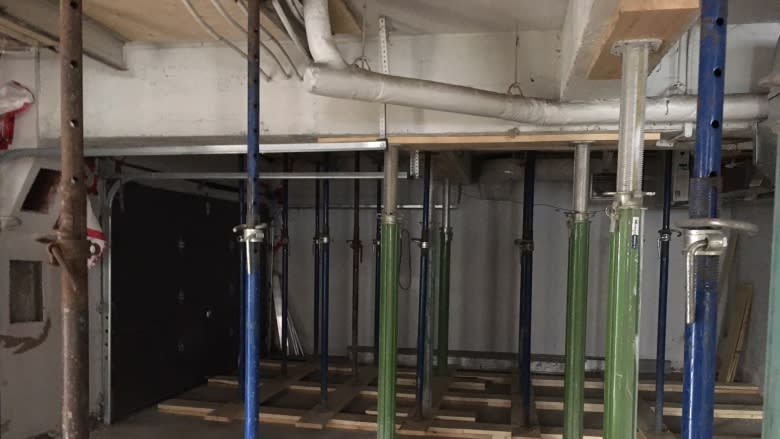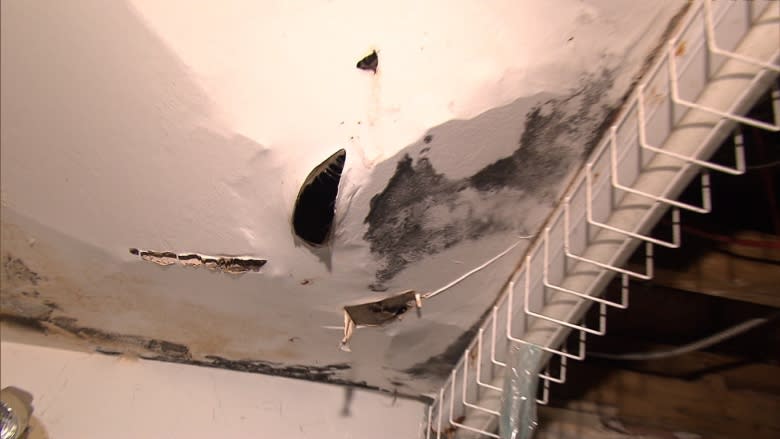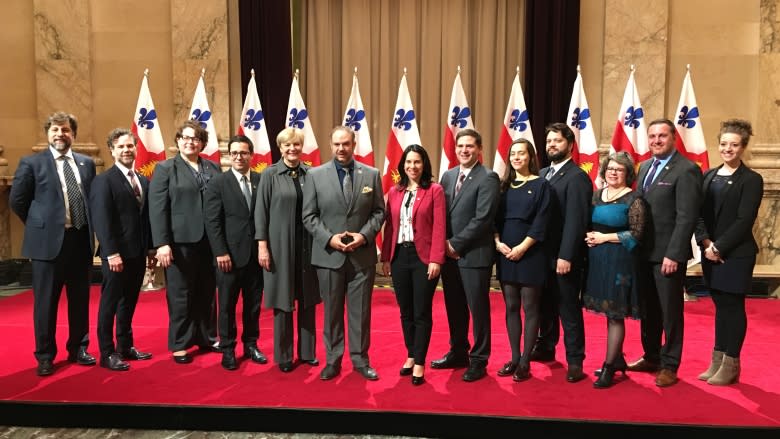Cleaning up Montreal's stock of social housing a priority for Projet administration
Montreal's new mayor stood in the basement of Aamir Bhatti's crumbling housing co-op during the election campaign, promising her administration would do more for low-income tenants.
Valérie Plante was carried to victory earlier this month, in part, by vowing to both expand the city's supply of social housing and improve its existing stock of affordable units.
On Monday, she sent a signal that housing will be a priority of her administration. Plante announced the vice-chair of her executive committee, Magda Popeanu, will also be responsible for housing and real estate.
Popeanu also visited Bhatti's red-bricked building in the Côte-des-Neiges—Notre-Dame-de-Grâce borough during the election campaign. A collection of temporary posts in the basement is all that is keeping the building from collapsing.
"She said, 'Don't worry, things will be done,'" recalled Bhatti, who is president of the tenant-run co-op. "I'm hoping Magda will do something."
Dealing with unsanitary units
The co-op on Barclay Avenue is among hundreds of properties the city funds or supervises, as part of its effort to ensure there is social and affordable housing available to low-income Montrealers.
However, not only is there a dire shortage of units — an estimated 25,000 families are on Montreal's waiting list for subsidized housing — but many of the existing buildings are in poor condition.
The tenants' rights group RCLALQ said unsanitary housing will be its top concern when its officials meet Popeanu in the coming days.
"The private supply of low-income housing is aging and is badly maintained," said RCLALQ's spokesperson, Maxime Roy-Allard.
"The owners have to be forced to conduct the necessary repairs and renovations. They can't be allowed to rent apartments that threaten the health of tenants, which is the case at the moment."
Popeanu remembered her visit to Bhatti's building, saying it was "unbelievable" that families were living in such conditions in Montreal.
"As a local issue, it will be the first thing we do — to take care of this building because it's really dangerous," said Popeanu, who is also a city councillor for Côte-des-Neiges—Notre-Dame-de-Grâce.
The borough has earned a reputation over the years as a haven for slumlords and squalid apartment buildings. Popeanu said her experience working on such issues at the borough level means she's sensitive to the problem and willing to tackle it citywide.
"For me, it will be the biggest [priority]."
Boosting supply
During the campaign, Plante said her administration would hire 30 additional building inspectors and give them more power to hold landlords accountable for upkeep.
But city hall will also face pressure to keep Projet's promise to increase the supply of affordable rental units for families.
The shortage of such units, said RCLALQ's Roy-Allard, is reaching crisis levels. Though Montreal's real-estate market has shown signs of robust growth recently, that growth has been concentrated in the higher-end condominium market.
Few of the new apartment buildings coming onto the market have family-sized units.
"The private market does not meet this need, because it is not profitable enough," Roy-Allard added.
The city's efforts on that front may receive a boost later this week, if the federal government announces its national housing strategy, as expected, on Wednesday.
Ottawa's goal is to build 80,000 new affordable rental units across the country over the next decade, through a combination of public money and private capital.
More than $10 billion has already been earmarked for the strategy, a portion of which Popeanu said she expects will be spent in Montreal.






